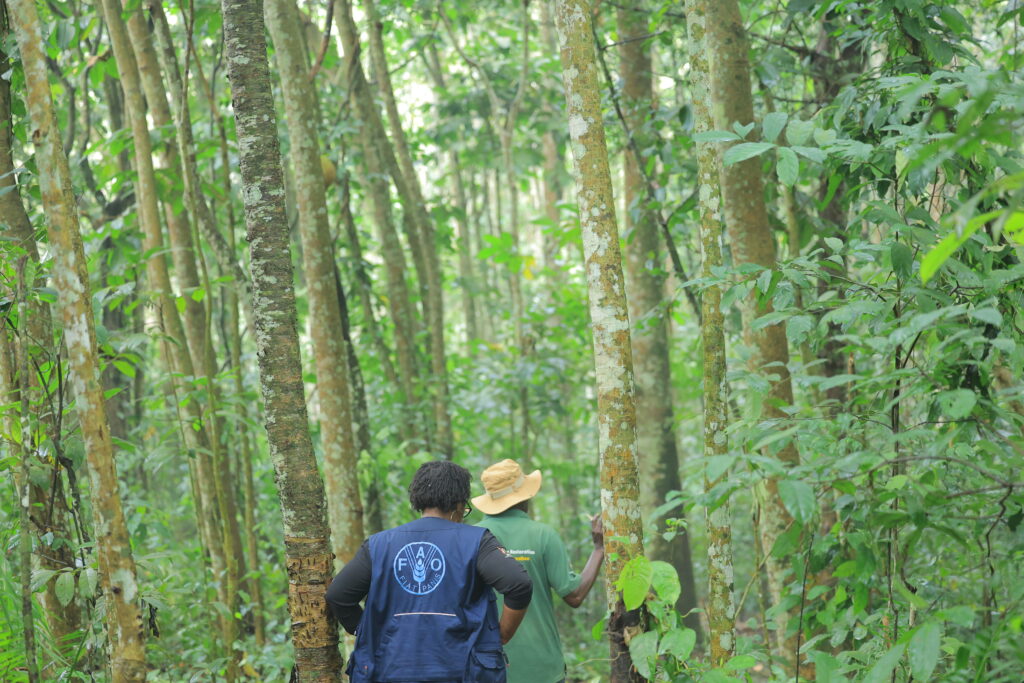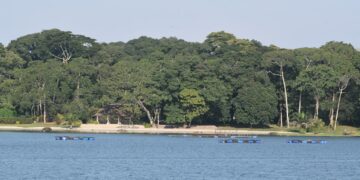Uganda has set a continental precedent after becoming the first country in Africa and the Least Developed Countries (LDCs) to get a results-based payment from the Green Climate Fund (GCF).
The GFC board approved a $31 million (over Sh107bn) grant-based payment in recognition of the country’s progress in combating deforestation and emissions. This was achieved during the 43rd meeting of the GCF Board held from 27 to 30 October in Songdo, Korea.
The United Nations’ Food and Agriculture Organisation (FAO), an accredited entity, represented Uganda at the event and presented the country’s REDD+ project for reducing emissions (2016-2017) at the meeting.
According to her LinkedIn message, Mrs. Margret Athieno Mwebesa, the Commissioner for Climate Change at the Ministry of Water and Environment, and UNFCCC National Focal Point, the milestone came as a result of Uganda’s climate-smart forestry and sustainable land management.
Athieno added that this achievement was made possible through strong partnerships between the FAO, the Ministry of Water and Environment, multiple development partners, and local communities all working together to build robust forest monitoring systems and drive sustainable livelihoods.
She further explained that the funds will be reinvested into various activities including sustainable land management and agro-forestry, restoration of degraded forests, establishing community and small-holder woodlots, scaling climate-smart fuelwood production, in addition to enhancing the monitoring, reporting, and verification system.
“This success underlines our commitment to delivering on Uganda’s Nationally Determined Contributions (NDCs) and advancing our vision for forests as a cornerstone of climate resilience and development,” she added.
According to a statement by the United Nations’ Food and Agriculture Organisation (FAO), the payment acknowledges Uganda’s efforts in reducing emissions by more than 8 million tonnes of CO₂ between 2016 and 2017. This is roughly equivalent to growing over 133 million tree seedlings over a decade.
“The GCF’s funding approval shows how results-based finance can reward effective climate action and deliver benefits for people and nature, and is a recognition of Uganda’s efforts and achievements,” said FAO Director-General QU Dongyu.
Dongyu explained that the achievement also highlights how early investments in readiness and capacity building can deliver transformative results for forests, food security, and communities.
REDD+ Framework
Alfred Okot Okidi, the Permanent Secretary for the Ministry of Water and Environment, welcomed the GCF decision, saying that the revenue from the REDD+ Results forms part of Uganda’s broader ambition to mobilise Climate Finance. “It clearly shows how patience in this strategically important space pays off,” Okidi added.
Projects under the result-based payment scheme such as the one co-implemented by the Government of Uganda and the FAO are proven to be a cost-effective way of achieving measurable climate mitigation results.
In addition, FAO pledges to work with the government of Uganda to channel the $31 million disbursement from the Green Climate Fund into different initiatives that can ease pressure on ecosystems, secure additional REDD+ benefits and then strengthen local food security.
The holistic approach also helps with catalysing more income opportunities, strengthening governance, bolstering land tenure and contributing to better rural livelihoods.
According to the Ministry of Water and Environment, the next stage of investment will focus on empowering local communities through more practical and inclusive forest management enterprises.

Community-based pole and timber plantations will reduce the distances rural women must walk to collect firewood, while collective forest management and land rights agreements will help reduce conflicts and foster a sense of ownership.
A robust Benefit Sharing System will also ensure equitable access to forest resources, particularly for Forest Dependent Indigenous Peoples and other vulnerable and marginalised groups such as women.
The total value of the FAO-GCF portfolio currently amounts to $1.8 billion, with 114 readiness grants – including 38 in Africa and 29 investment projects in place worldwide serving more than 60 million people.
CSOs
Civil Society actors have applauded the government for upon this historical milestone, saying it’s a huge step forward in combating climate change and mitigating its effects.
According to the Biodiversity Conservation Foundation (BCF), an umbrella organisation of environmental activists in Masaka sub-region, the funding comes at a critical time when many African countries are struggling to finance efforts to address climate change and environmental degradation.
“This funding boost is a catalyst that can relatively gear up the efforts at the national level,” said Antonio Kalyango, the foundation’s Executive Director.
Kalyango further pointed out that the bureaucracy and corruption often prevent real actors who are actually working on the ground from benefiting or contributing meaningfully.
“Let these funds be decentralised so that conservation prayers from all parts of the country can benefit from it. By doing so, every region shall be impacted but with a priority to areas that are prone to climate change-inspired catastrophes.
Kayinga Muddu Yisito, the Environmental Human Rights Defender and Network Coordinator for Community Transformation Foundation Network (COTFONE), urges the reinvestment to be directed towards communities affected by the East African Crude Oil Pipeline (EACOP) corridor in Central Uganda.
The EACOP project lifetime emissions from pipeline construction and operations, crude oil shipping, refining, and end use will contribute significantly to the generation of massive amounts of climate-warming carbon dioxide. “It is therefore incompatible with the Paris agreement’s 1.5C° warming target,” said Kayinga.
The 2022 analysis by the Climate Accountability Institute (CAI), the EACOP project could produce around 379 million tons of carbon dioxide emissions over 25 years, with peak annual emissions more than doubling the current annual emissions of Uganda and Tanzania combined.
END
































